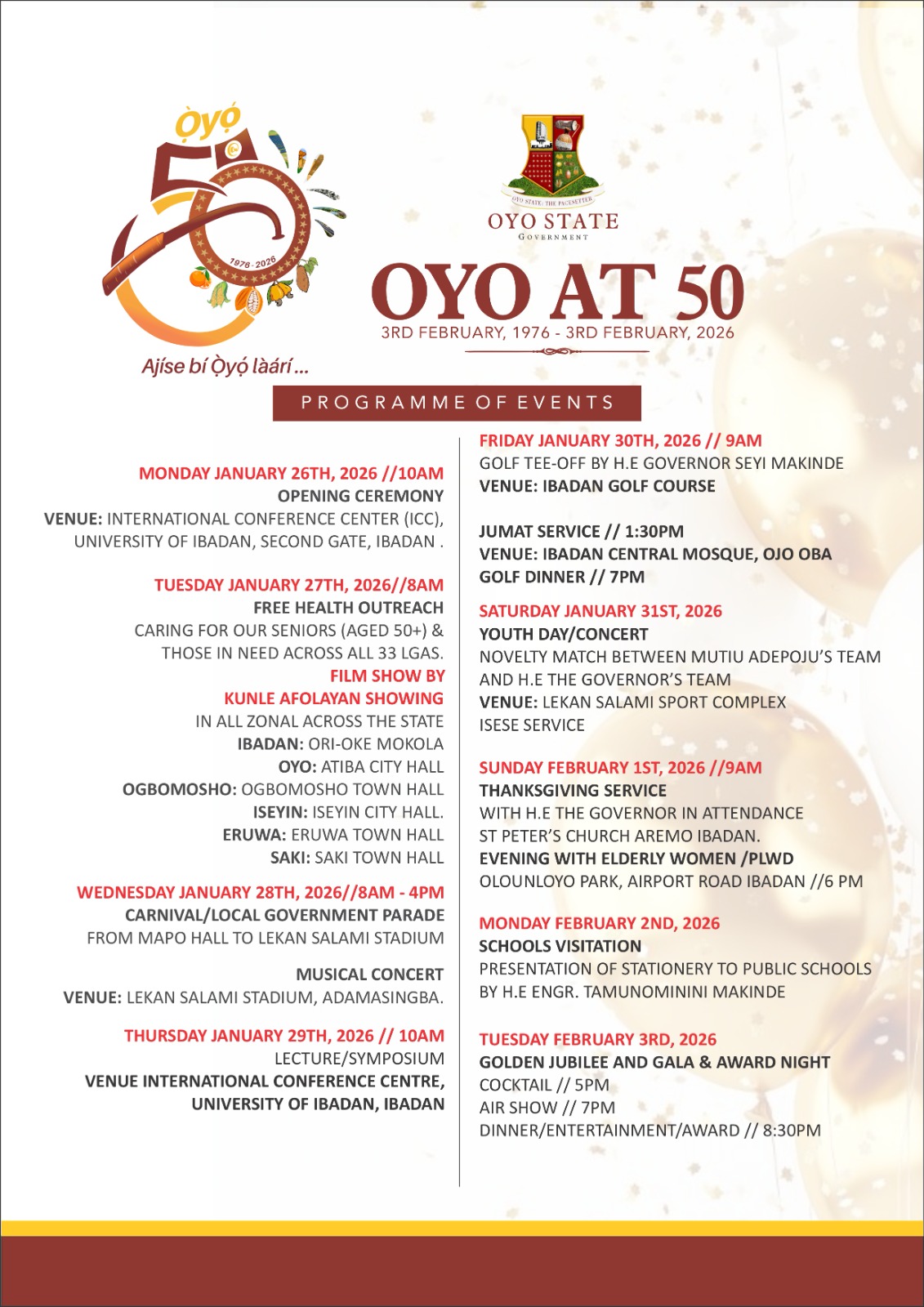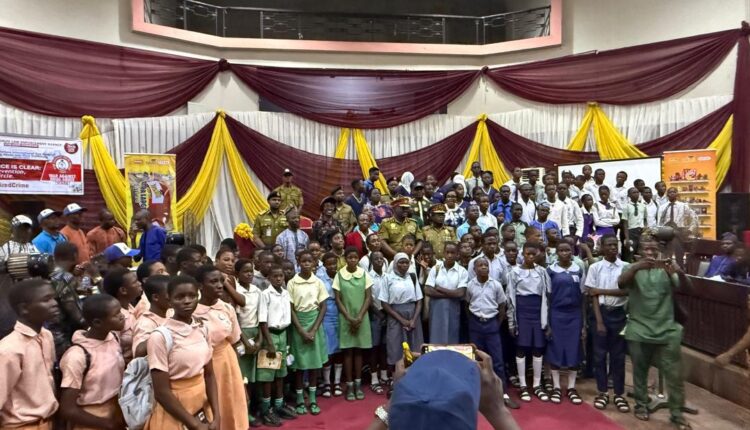Oyo State Rallies Stakeholders to Combat Drug Abuse on UN Commemoration Day


In commemoration of the United Nations International Day Against Drug Abuse and Illicit Trafficking, the Oyo State Government has issued a passionate call to action, urging all sectors of society to invest in prevention as the key to ending the growing scourge of drug abuse particularly among the youth.
At a well-attended event held at the House of Chiefs, Secretariat, Ibadan, and organized by the Oyo State Drug Abuse Control Committee, students, educators, civil society organizations, security agencies, and government officials gathered in solidarity under this year’s theme: “The Evidence is Clear: Invest in Prevention, Break the Cycle.

In her address, Oyo State Commissioner for Health, Dr. Oluwaserimi Ajetunmobi, warned of the alarming rate of drug use among young Nigerians, citing a 2018 statistic that over 14 million people between the ages of 15 and 64 had used drugs other than tobacco and alcohol more than double the global average. She identified peer pressure, unemployment, emotional trauma, and misinformation as key factors driving drug abuse, especially among youths aged 15 to 35.
“Substance abuse disrupts lives, derails academic dreams, fuels crime, and burdens our health systems,” she said. “Investing in prevention is not just humane; it is cost-effective. Every ₦1 spent saves ₦10 in future treatment and enforcement.”
Dr. Ajetunmobi outlined a broad state strategy, including integrating drug education into school curricula, promoting peer-led student advocacy, expanding mental health services in schools, and strengthening community engagement through sports, mentorship, and entrepreneurship programs. She also reaffirmed the government’s commitment to treating addiction as a public health issue rather than a moral failing, advocating for youth-friendly rehabilitation services and the reduction of stigma around seeking help.
To demonstrate its commitment, Oyo State has already launched Drug-Free Clubs in over 150 secondary schools and established Drug Abuse Control Committees in all 33 local government areas. These efforts are supported by partnerships with the National Drug Law Enforcement Agency (NDLEA), NGOs, and various community stakeholders.

In his message, Commander Joe Yinka Fadile of the NDLEA, Oyo State Command, emphasized the significance of June 26 in mobilizing action against drug abuse. He described drug misuse as a threat not only to individual lives but to societal stability, urging parents, educators, and community leaders to take an active role in prevention efforts.
“Drug abuse destroys dreams, dismantles families, and erodes our moral fabric,” he said. “But with sustained education, early intervention, and united community action, we can build a society where every child is protected and valued.”
Delivering the keynote address on behalf of Professor Lasebikan, Dr. O.O. Ayinde of the University College Hospital (UCH) underscored the far-reaching consequences of psychoactive substance abuse. He described them as “brain-altering agents” that affect behavior, cognition, and health—leading to depression, psychosis, addiction, criminality, school dropout, and chronic illnesses such as heart and liver disease.
He called for both primary prevention, aimed at deterring first-time use among youth, and secondary strategies to support those already affected, warning that substance abuse remains a global public health emergency.
Goodwill messages from representatives of the Pharmaceutical Society of Nigeria and the Association of Lady Pharmacists highlighted the collective responsibility required to combat drug abuse. They pledged continued support for Oyo State’s efforts and called for broader collaboration among all stakeholders.
Representatives from the World Health Organization, Nigerian Police Force, Progressive Tradesmen and Artisans (Oyo Chapter), and students from various schools also participated, reflecting the broad-based support for a drug-free future.
The event concluded with a rousing call to action from Dr. Ajetunmobi, who invoked the words of abolitionist Frederick Douglass: *“It is easier to build strong children than to repair broken adults.”* She urged everyone students, teachers, parents, and communities to say no to drugs and yes to a future of health, opportunity, and hope.
...For the latest news update, Subscribe to our Whatsapp Channel (Click Here) and join our Telegram Update Group (Click Here)

You can also advertise your Product and Services on our page for more patronage
Contact us today by sending your Stories, Articles, Events, and Eyewitness Reports for publications as well as products and services for advertisement to westerndailies2018@gmail.com or WhatsApp (+2348058448531) for more information



